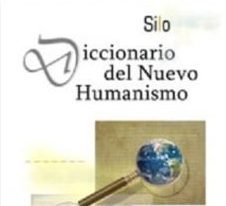Universalist Humanism
Universalist Humanism
 Also called “New Humanism“. Characterized by an emphasis on the “humanist attitude”. The humanist attitude is not a philosophy but a point of view, a sensibility and a way of living in relationship with other human beings. U.H. maintains that in all cultures, in their most creative moment, the humanist attitude pervades the social environment. In such periods, discrimination, wars and violence in general are repudiated. Freedom of ideas and beliefs is fomented, which in turn provides incentive for research and creativity in science, art and other social expressions. U.H. proposes a dialogue between cultures that is neither abstract nor institutional, but rather an agreement on fundamental points and a mutual and concrete collaboration between representatives of different cultures based on their respective and symmetrical humanist “moments” or eras (Humanist moment). The general ideas of U.H. are formulated in the “Statement of the Humanist Movement” (Humanist Statement).
Also called “New Humanism“. Characterized by an emphasis on the “humanist attitude”. The humanist attitude is not a philosophy but a point of view, a sensibility and a way of living in relationship with other human beings. U.H. maintains that in all cultures, in their most creative moment, the humanist attitude pervades the social environment. In such periods, discrimination, wars and violence in general are repudiated. Freedom of ideas and beliefs is fomented, which in turn provides incentive for research and creativity in science, art and other social expressions. U.H. proposes a dialogue between cultures that is neither abstract nor institutional, but rather an agreement on fundamental points and a mutual and concrete collaboration between representatives of different cultures based on their respective and symmetrical humanist “moments” or eras (Humanist moment). The general ideas of U.H. are formulated in the “Statement of the Humanist Movement” (Humanist Statement).
NEW HUMANISM
The representatives of this movement have a clearly defined position in relation to the current historical moment. For them it is indispensable to construct a humanism that will contribute to the improvement of life, that will confront discrimination, fanaticism, exploitation and violence. In a world that is rapidly becoming globalized and showing signs of intensifying collisions between cultures, ethnic groups and regions, participants in N.H. propose a Universalist Humanism that is both plural and convergent; in a world in which countries, institutions, and human relations are becoming destructured, fragmented. They work for a humanism capable of rebuilding social forces; in a world in which the meaning and direction of life have been lost, they emphasize the need for a humanism capable of creating a new atmosphere of reflection, in which the personal sphere will no longer be irrevocably opposed to the social, nor the social opposed to the personal. These exponents, interpreters and militants encourage a creative humanism, not a repetitive humanism; a humanism that, aware of the paradoxes of the times, aspires to resolve them.
N.H. favors the modification of the scheme or structure of power for the purpose of transforming the present social structure, which is rapidly becoming a closed system (Planetarization) in which the practical attitudes and theoretical “values” of anti-humanism increasingly predominate.
From the Dictionary of New Humanism. Silo
